Search Engine Optimization (SEO) can feel like a mystery when you’re new to it. But with the right techniques, even beginners can make a significant impact on their website’s visibility and traffic. Did you know that 68% of online experiences begin with a search engine? That means if your website doesn’t appear in search results, you’re missing out on the majority of potential visitors.
This blog will walk you through seven actionable SEO hacks tailored for beginners. Whether you’re a small business owner, blogger, or just someone eager to learn, these tips will help you rank higher and reach the right audience.
Understanding Basic SEO Concepts
Before jumping into the hacks, let’s cover the basics. SEO is all about improving your website’s visibility in search engines like Google. It involves optimizing various elements to align with search engine algorithms so your site ranks higher when people search for relevant keywords.
Key Components of SEO:
- On-Page SEO: Optimizing the content, structure, and elements directly on your website (e.g., titles, keywords, meta tags).
- Off-Page SEO: Building backlinks and improving your site’s authority through external means.
Search engines prioritize websites that are user-friendly, responsive, and resourceful. Keeping this in mind sets the stage for the hacks we’re about to discuss.
1. Conduct Effective Keyword Research
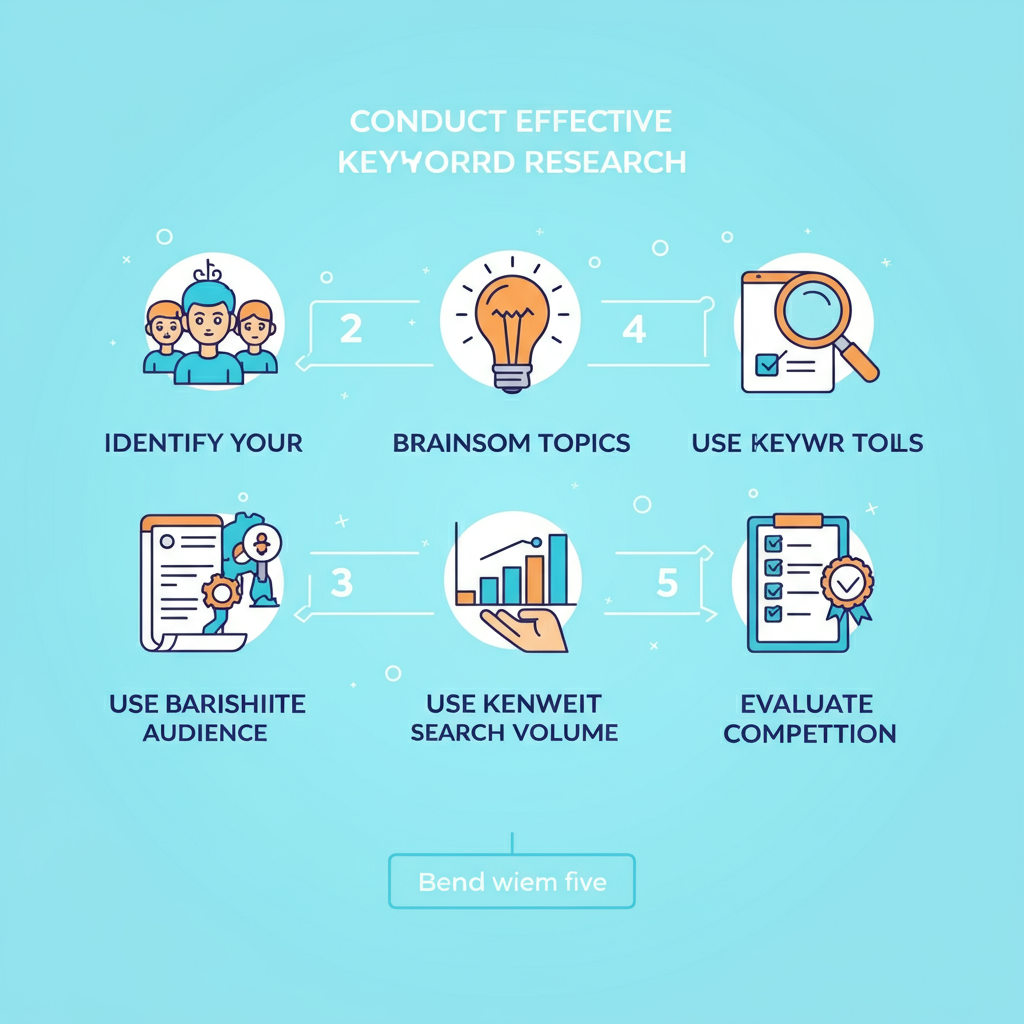
Keyword research is the foundation of any SEO strategy. Identifying the right keywords helps you understand what your audience is searching for.
How to Start Keyword Research:
- Use tools such as Google Keyword Planner, SEMrush, or Ahrefs.
- Look for keywords with low competition and high search volume.
- Focus on long-tail keywords (e.g., “SEO tips for small businesses”) as they’re more specific and easier to rank for.
Pro Tip: Start by brainstorming 10–15 topics related to your niche, then expand those into specific keyword phrases using the tools mentioned above.
Example:
- Broad topic: SEO
- Long-tail keyword: “Beginner SEO hacks for small businesses”
2. Optimize On-Page Elements for Search Engines
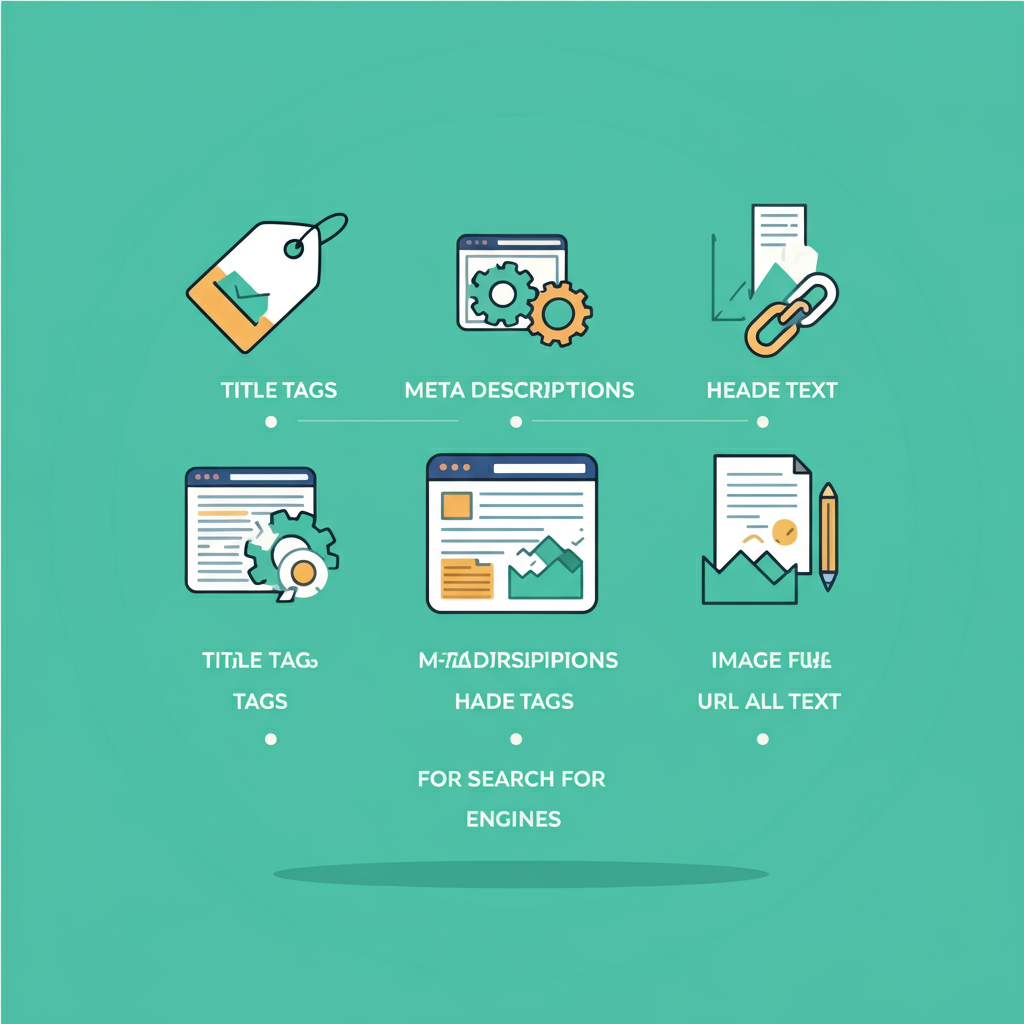
On-page SEO involves fine-tuning individual web pages for specific keywords. Here’s what you need to focus on:
Title Tags
- Keep them under 60 characters.
- Use your primary keyword early in the title.
- Make it compelling to entice clicks.
Example Title Tag:
- “SEO Tips for Beginners to Skyrocket Your Traffic”
Meta Descriptions
- Keep meta descriptions under 155 characters.
- Write a clear, engaging summary of your page’s content.
- Include your target keyword naturally.
Example Meta Description:
- “Learn 7 quick SEO hacks for beginners. Boost your website’s traffic and rank higher with these actionable tips!”
URL Structure
- Use short, descriptive URLs with keywords.
- Avoid numbers or overly long URLs.
Example:
- Good: www.example.com/seo-tips-for-beginners
- Bad: www.example.com/page1/82745seo
Pro Tip: Break up content using proper header tags (H1, H2, etc.) for better readability and improved SEO.
3. Create High-Quality, Optimized Content

Content is king when it comes to SEO. Search engines reward websites that deliver value through engaging, well-structured content.
How to Optimize Content:
- Write original, informative articles.
- Naturally integrate keywords into headings and paragraphs without keyword stuffing.
- Use bullet points, numbered lists, and subheadings to enhance readability.
Example Content Workflow:
- Start with a strong hook. Did you know that 90% of web pages don’t get any traffic from Google? Here’s how to ensure yours isn’t one of them.
- Break the content into sections focusing on your target keyword.
- End with a CTA. “Try out these tips and monitor your progress using Google Analytics.”
Pro Tip: Aim for comprehensive content that answers your audience’s questions and encourages them to stay on your site longer.
4. Build Quality Backlinks
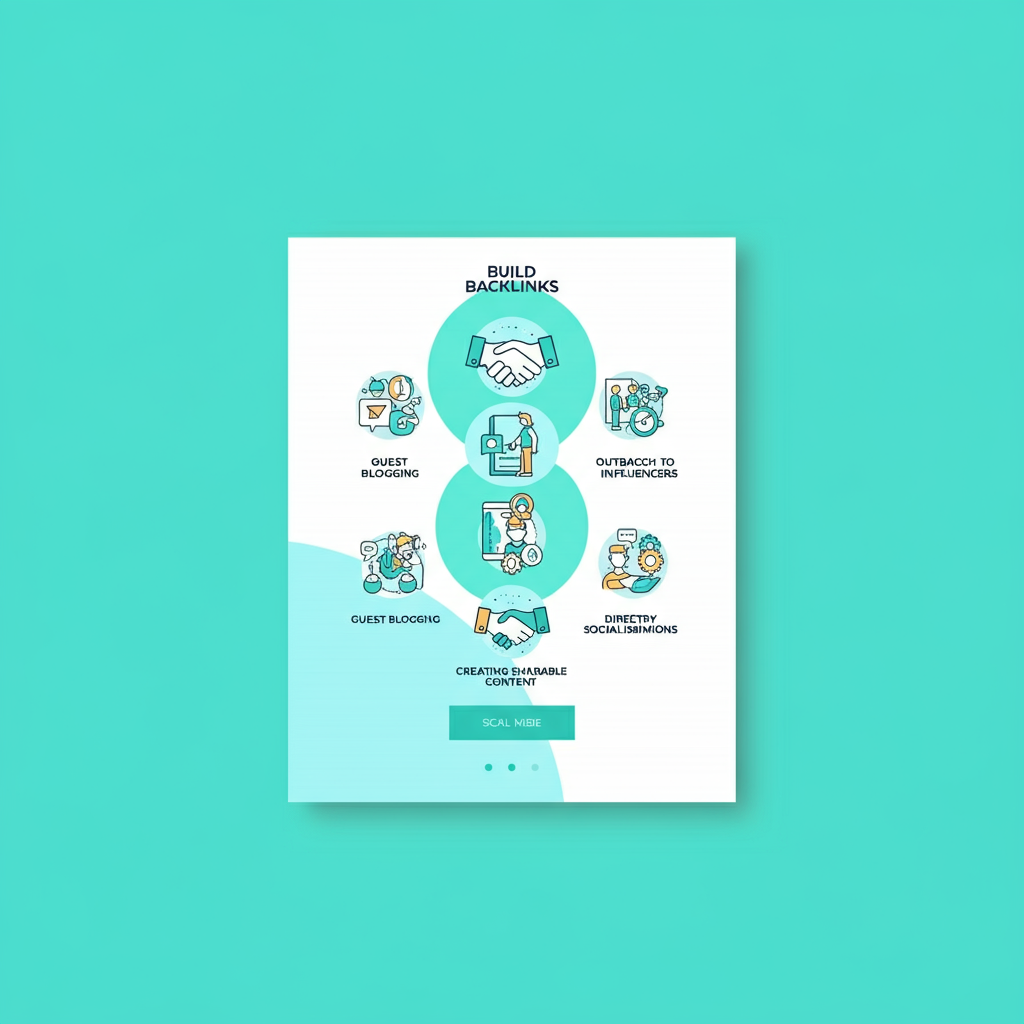
Backlinks are links from other websites to yours, signaling to search engines that your website is credible and authoritative.
Simple Link-Building Strategies for Beginners:
- Guest Blogging: Write articles for other reputable websites in your niche.
- Broken Link Building: Find dead links on other websites and offer your content as a replacement.
- Social Sharing: Share your content on social media platforms to gain visibility.
Pro Tip: Use tools like Ahrefs or SEMrush to track and analyze your backlinks.
Remember, quality beats quantity. A single link from a high-authority site is far more valuable than dozens of links from low-quality sources.
5. Focus on Mobile Optimization
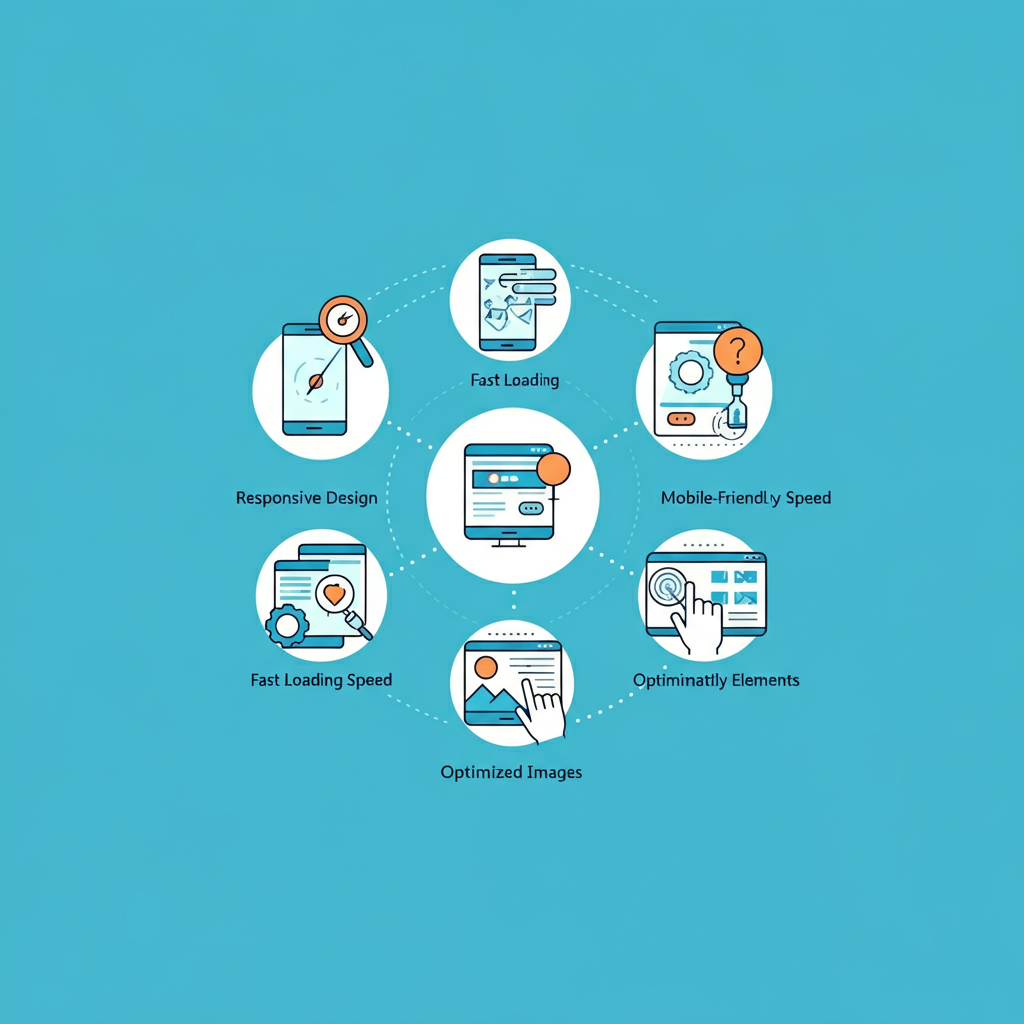
With over 60% of searches coming from mobile devices, having a mobile-friendly website is crucial.
How to Optimize for Mobile:
- Use responsive design so your site adapts to all screen sizes.
- Compress images to improve page load speed.
- Test your site’s mobile performance using Google’s Mobile-Friendly Test Tool.
Pro Tip: Check your Core Web Vitals (e.g., load time, interactivity, and visual stability) using Google Search Console for better mobile performance.
6. Measure and Refine Your SEO Efforts
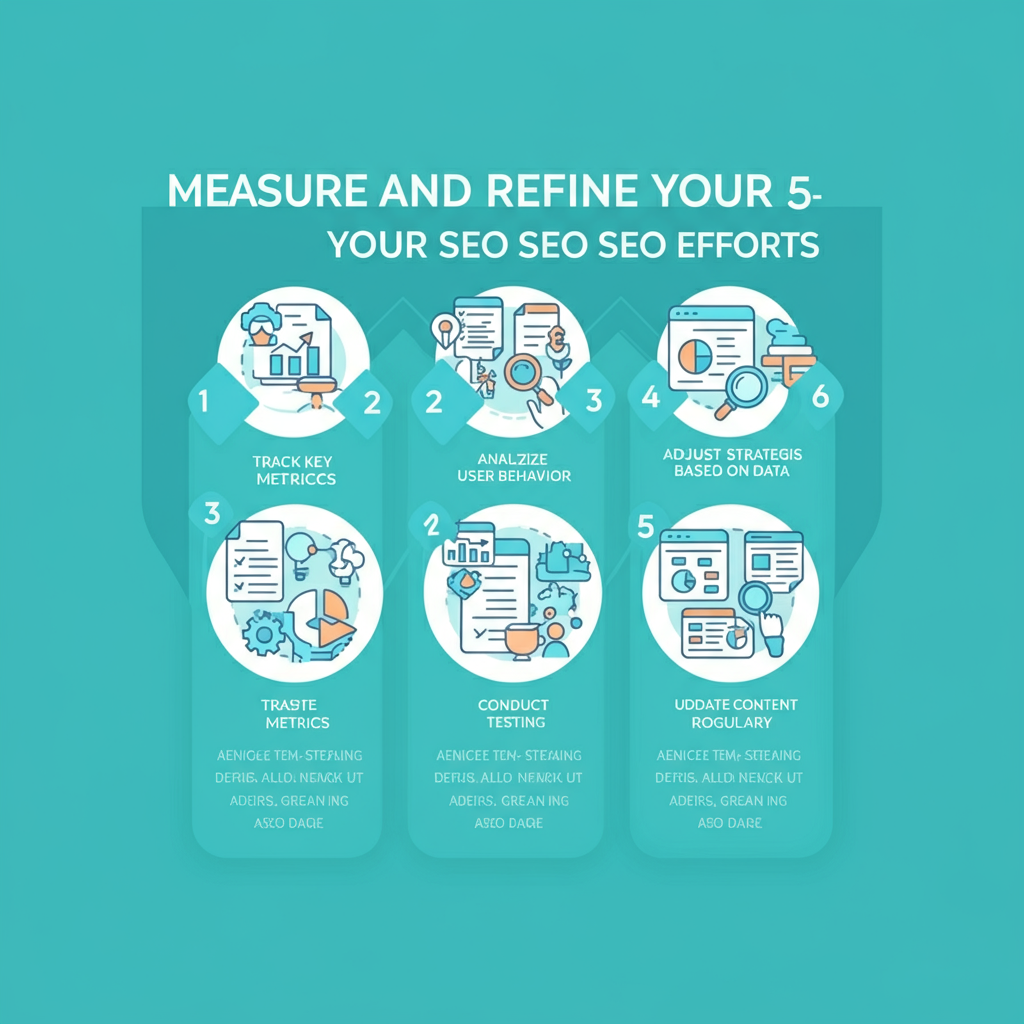
To know if your efforts are working, you need data. That’s where Google Analytics and Google Search Console come in handy.
Key Metrics to Track:
- Organic traffic
- Keyword rankings
- Bounce rate
- Click-through rate (CTR)
Pro Tip: Set up custom reports in Google Analytics to monitor specific goals, like form submissions or eBook downloads.
Use this data to tweak your SEO strategy and focus on what’s performing best.
7. Master Local SEO
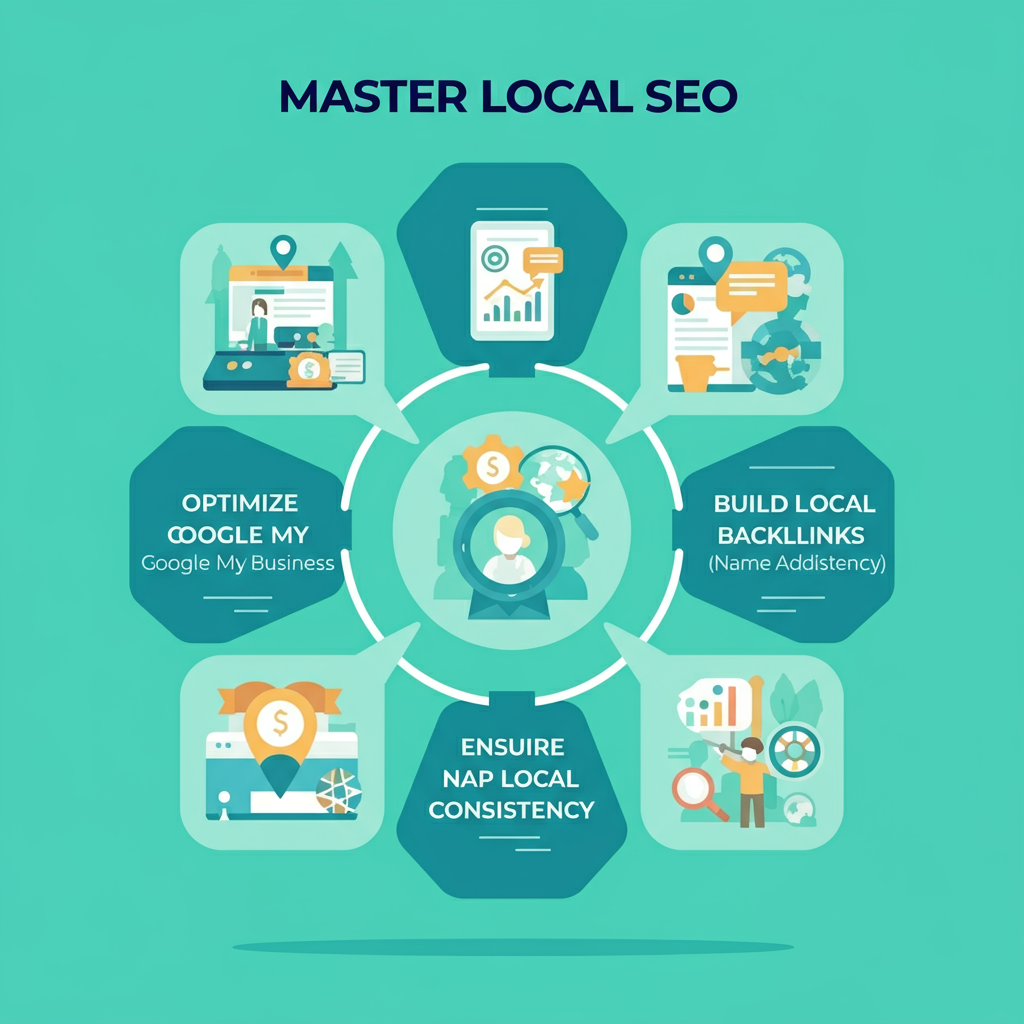
For small businesses, local SEO is indispensable. It allows you to target customers in your specific geographic area.
How to Optimize for Local SEO:
- Create and verify a Google My Business profile.
- Collect reviews from happy customers (encourage them to leave reviews directly on Google).
- List your business in local directories like Yelp and Foursquare.
Pro Tip: Ensure consistent name, address, and phone number (NAP) information across all platforms for better local rankings.
Avoiding Common SEO Mistakes
Even the best strategies can fail if critical missteps are made. Watch out for these rookie errors:
- Keyword stuffing
- Publishing duplicate or low-quality content
- Buying backlinks
Solve these before they harm your website’s ranking.
Step Up Your SEO Game Today
SEO doesn’t have to be intimidating. By applying these seven hacks, you’ll be well on your way to improving your website’s visibility and driving more organic traffic. Remember, SEO is a long-term game, so stay consistent and be patient.
Want to boost your SEO efforts with professional guidance? Visit our [resources page] for free tools and guides, and take your SEO knowledge to the next level.


